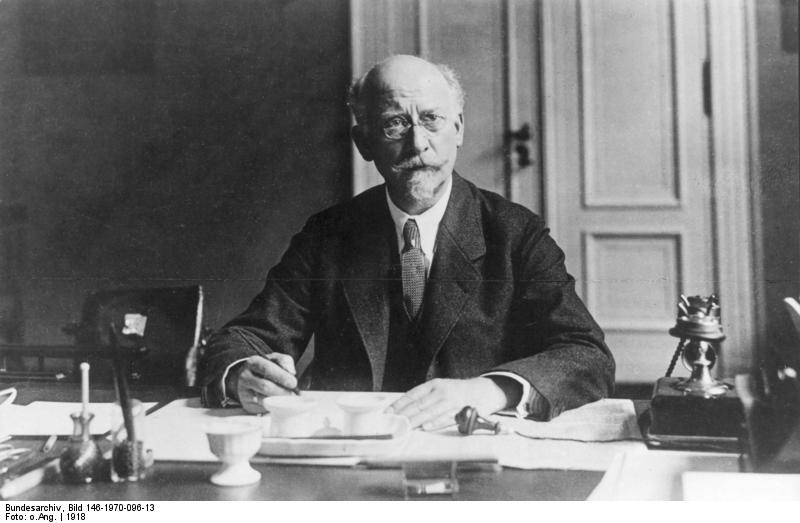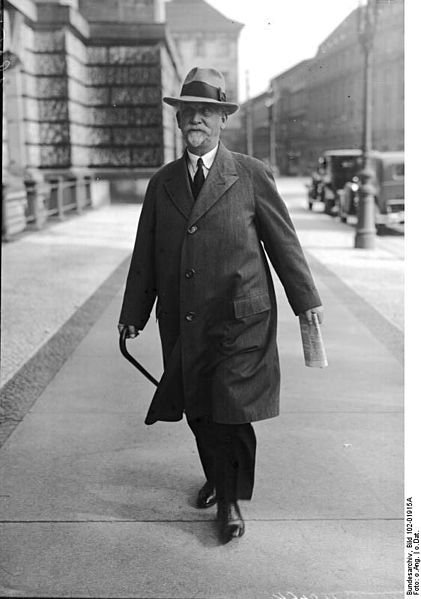<Back to Index>
- 10th Chancellor of Germany Philipp Scheidemann, 1865
PAGE SPONSOR
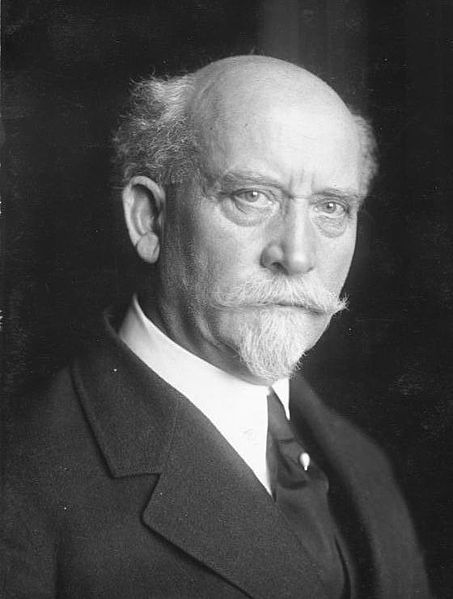
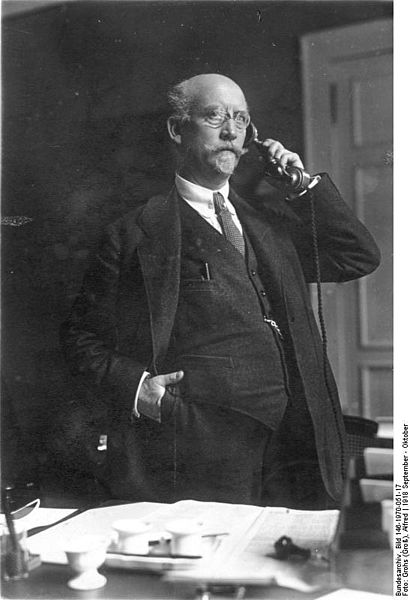
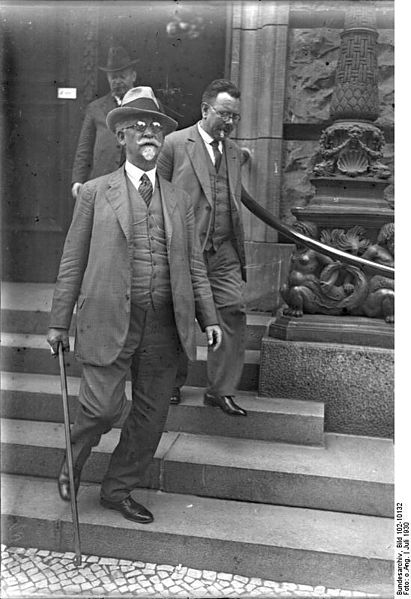
Philipp Scheidemann (26 July 1865, Kassel, Electorate of Hesse – 29 November 1939, Copenhagen) was a German Social Democratic politician, who proclaimed Germany a republic on 9 November 1918. He subsequently became the second Chancellor of the Weimar Republic.
He was by trade a printer, but in 1895 took to editing socialist newspapers, first at Giessen and afterwards successively at Nuremberg, Offenbach and Kassel. Scheidemann became a Reichstag delegate from Solingen for the Social Democrats in 1903, and soon rose to be one of the principal leaders of the party. During the First World War, Scheidemann, along with Friedrich Ebert was leader of the majority faction of the party, which continued to vote for war credits, limiting his opposition to the war to urging the negotiation of a compromise peace. In June 1918, Scheidemann was elected vice president of the Reichstag. When the Social Democrats were included in the cabinet for the first time in Prince Max of Baden's government in October 1918, Scheidemann entered the government as a minister without portfolio.
Following the Kaiser's abdication on November 9, Prince Max resigned in favor of Ebert. The new government intended to leave the question of whether to retain the monarchy in the hands of the people, though it preferred to turn Germany into a constitutional monarchy in the person of one of the Kaiser's grandsons. Hours after the Kaiser abdicated, Scheidemann, concerned in the face of a possible workers' revolution in Berlin, gave a speech from the balcony in the Reichstag building. He closed his speech with the following words:
The old and rotten, the monarchy has collapsed. The new may live. Long live the German Republic!"
The timing of this proclamation was probably due to the expectation of a similar proclamation of a "Workers' Republic" by the communists led by Karl Liebknecht, which indeed followed a couple hours later.
Scheidemann continued to serve as a leader in the Provisional Government which followed for the next several months, and following the meeting of the National Assembly in Weimar in February 1919, Ebert was appointed Reich President, and Scheidemann became Chancellor, in the Weimar Coalition with the German Democratic Party and the Catholic Center Party. Scheidemann resigned in June along with the DDP owing to disagreement with the Treaty of Versailles, and never again served in the government, although he remained active in politics, serving as Mayor of Kassel (1920 – 1925), and then again as a Reichstag delegate, where he exposed military opposition to the Republic. Scheidemann went into exile following the Nazi takeover in 1933, and died in Denmark shortly after the outbreak of the Second World War.
